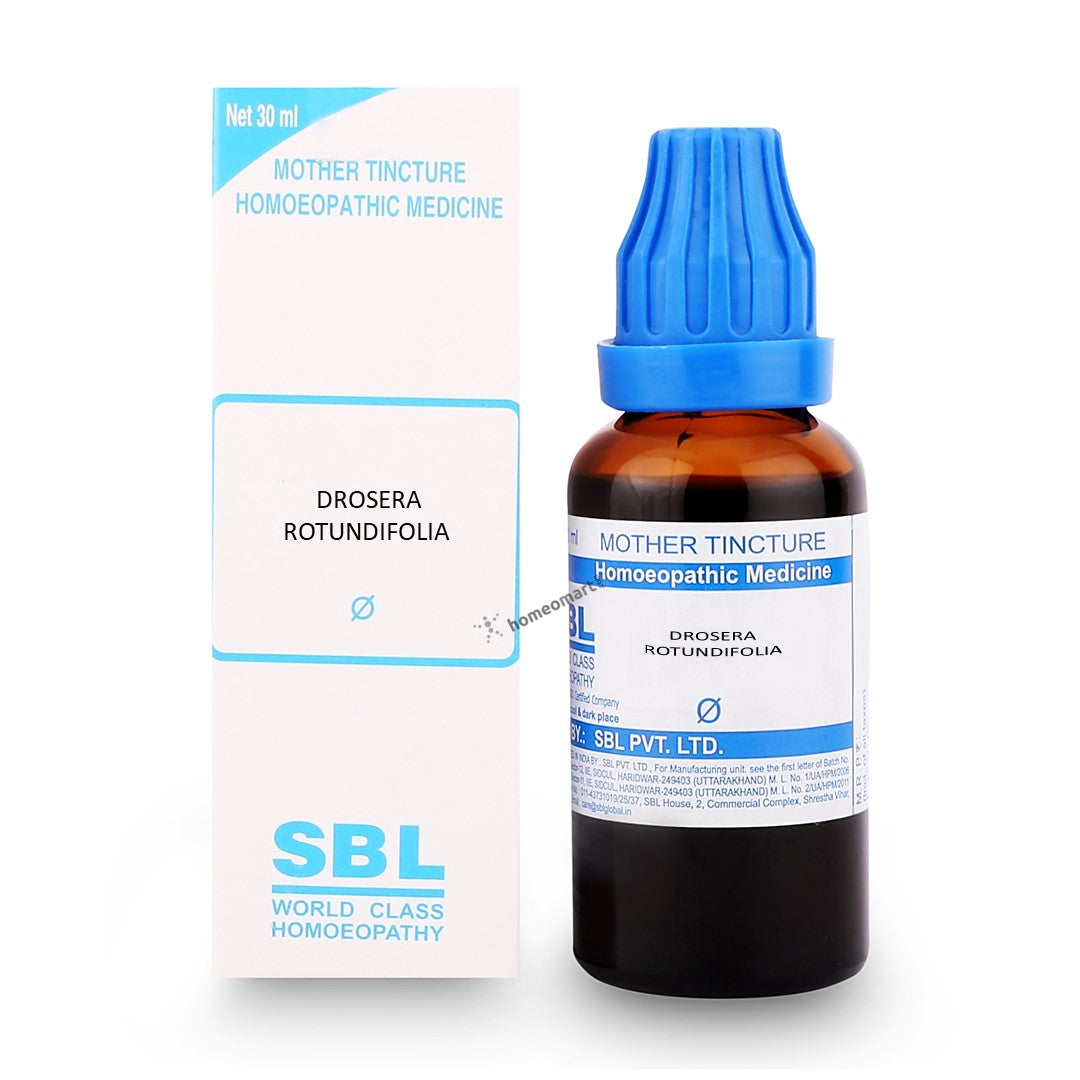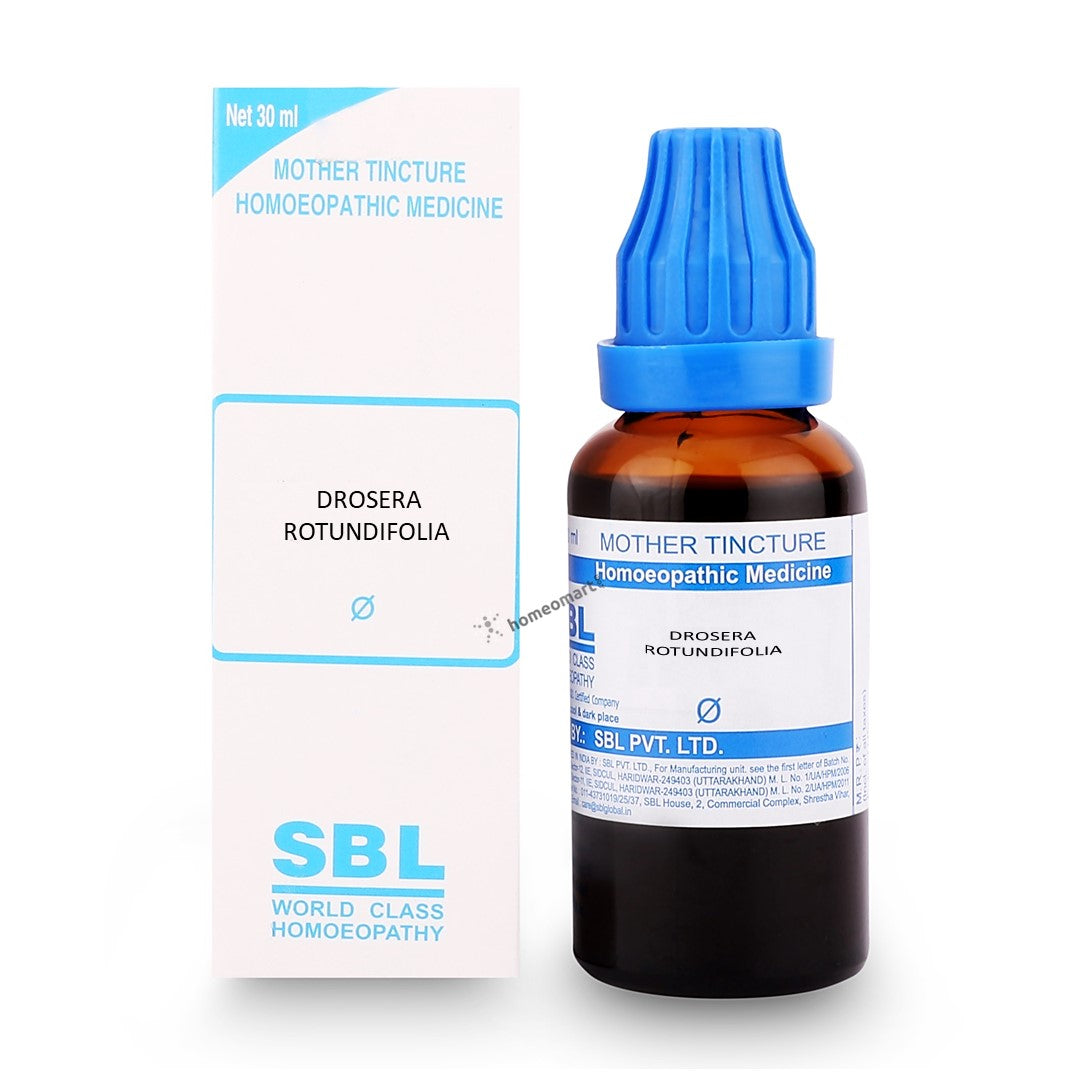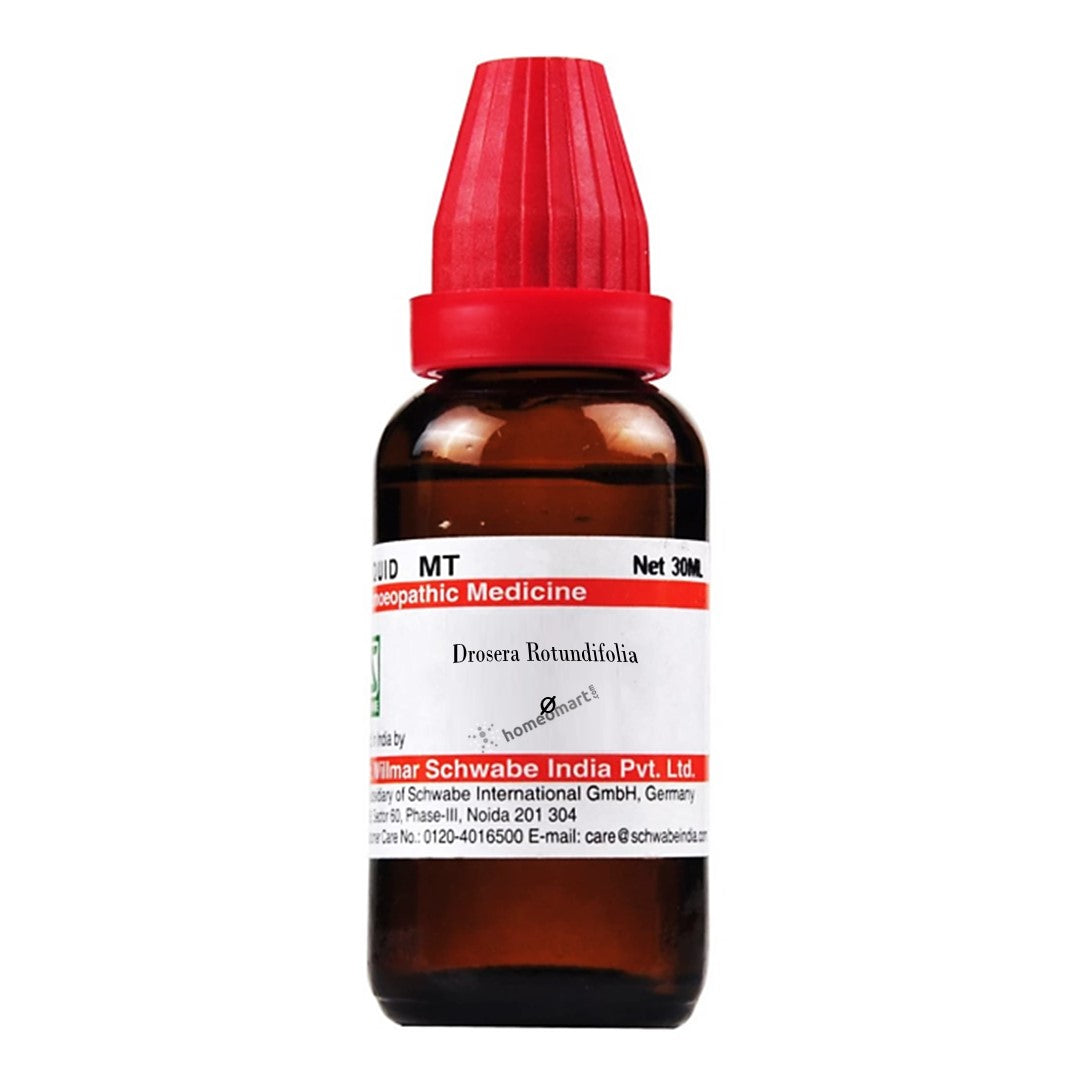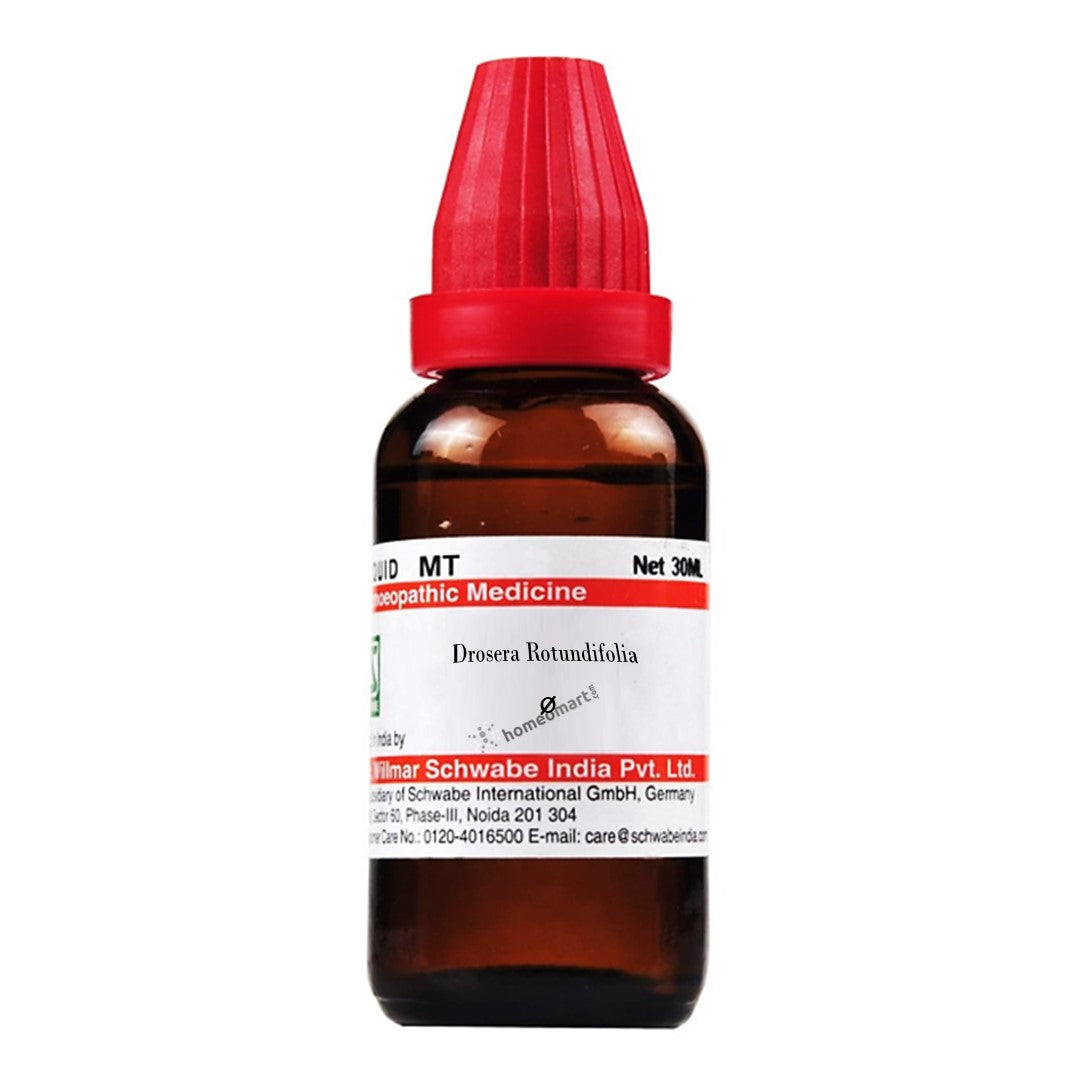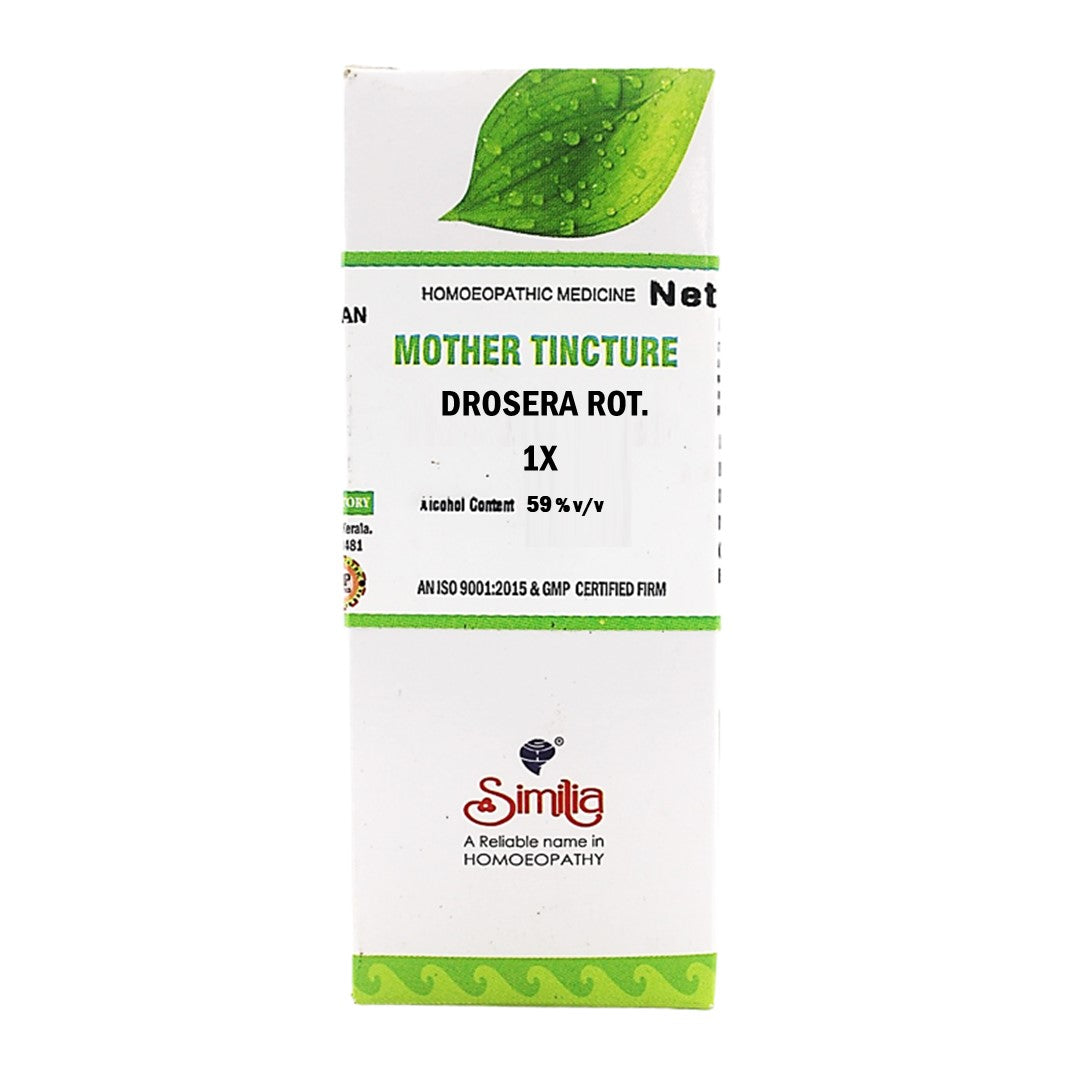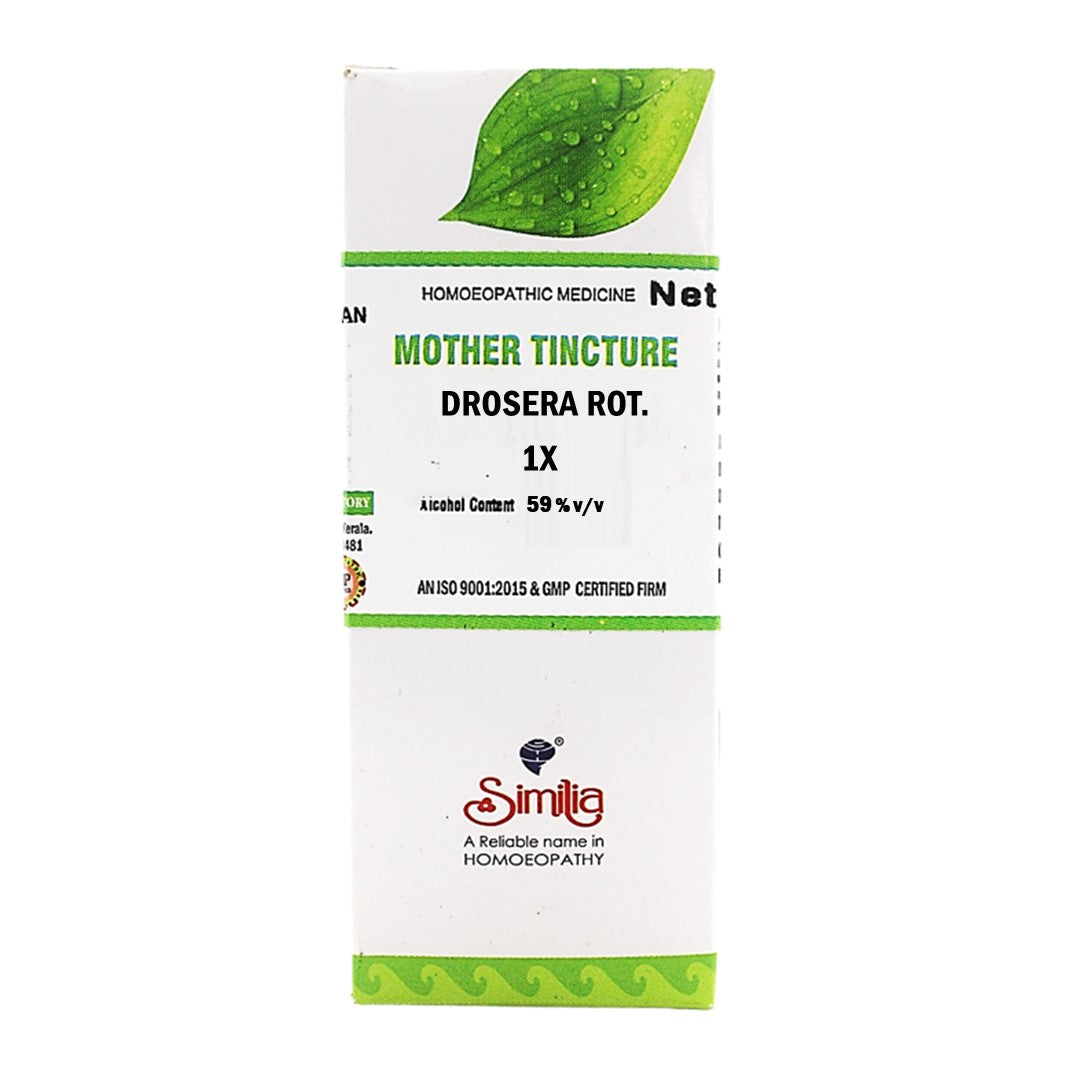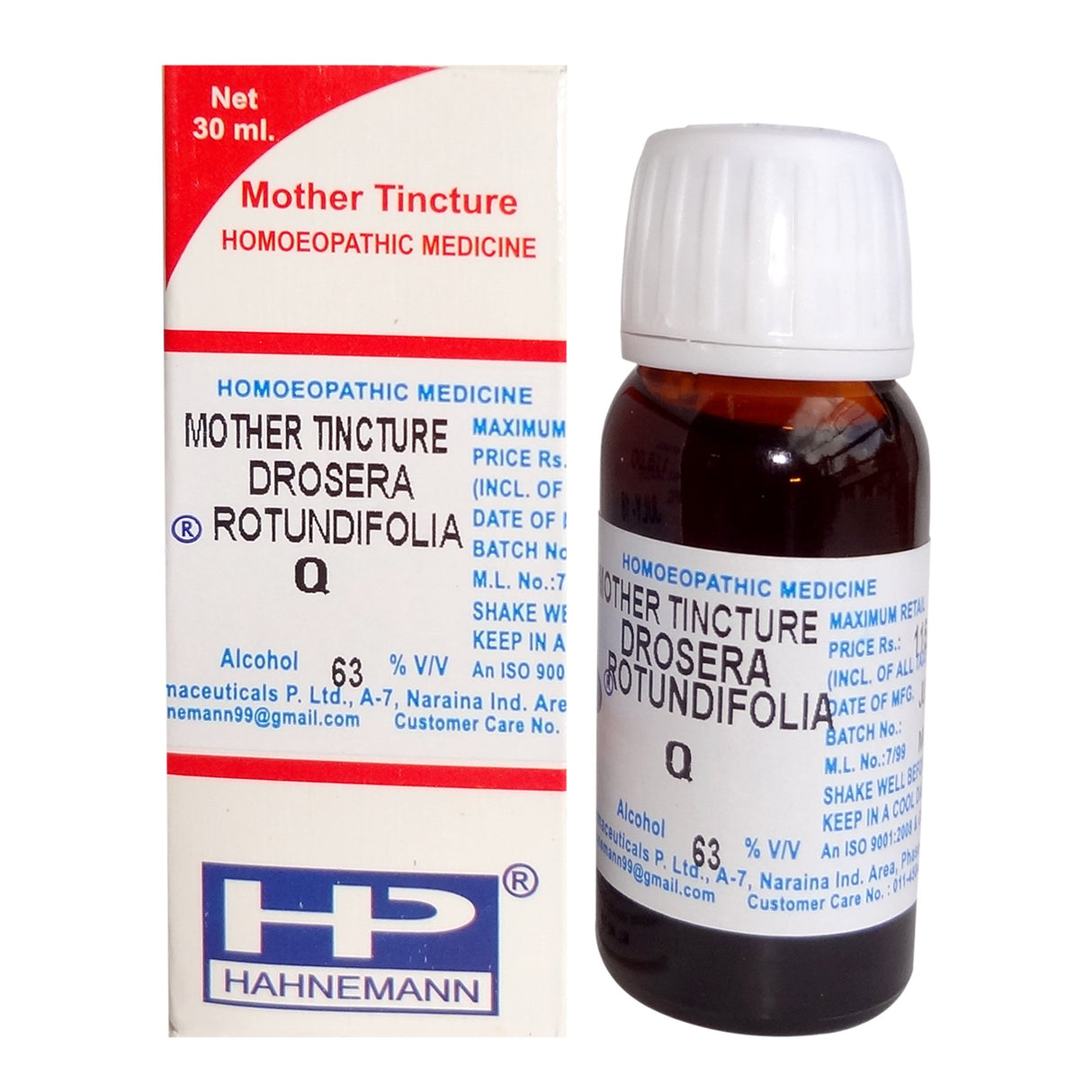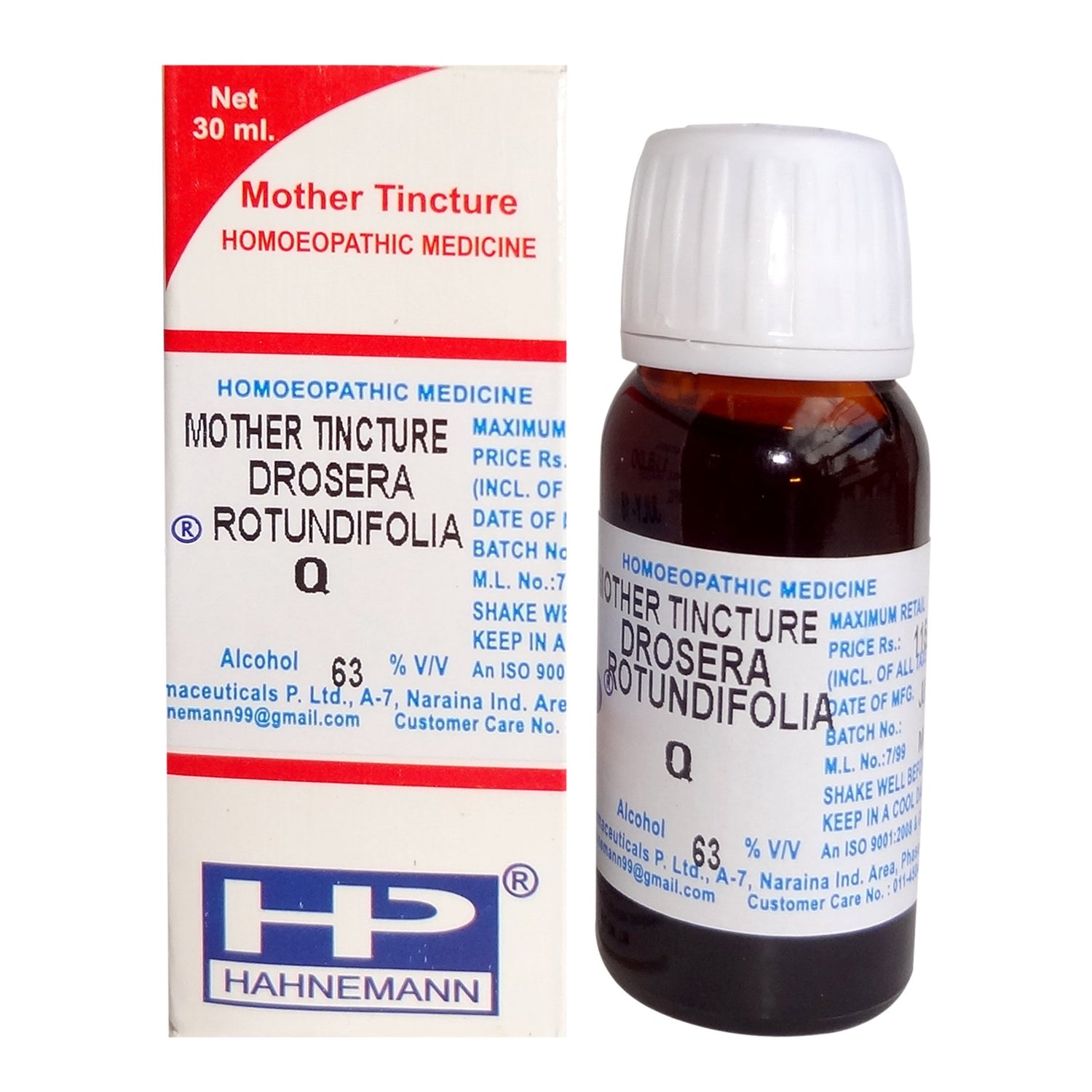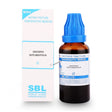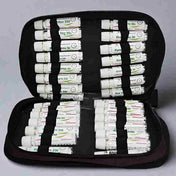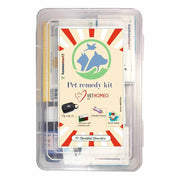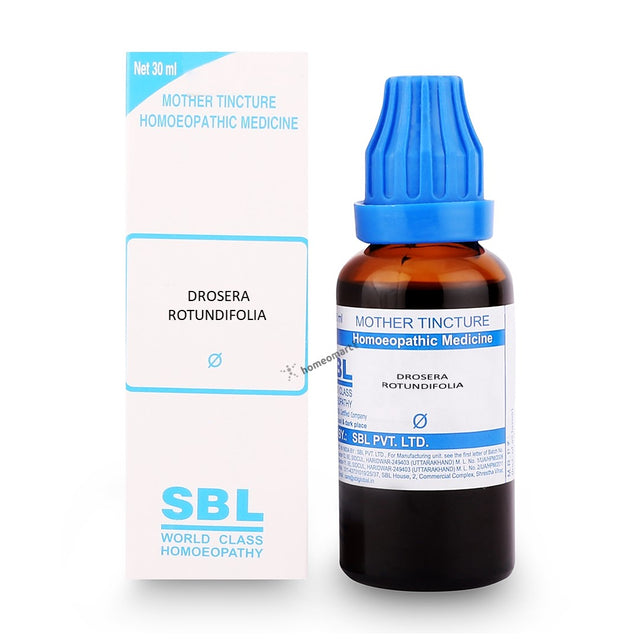Drosera Rotundifolia Homeopathy Mother Tincture
Drosera Rotundifolia Homeopathy Mother Tincture - Schwabe / 30ml is backordered and will ship as soon as it is back in stock.
Couldn't load pickup availability
Description
Description
Drosera Rotundifolia Overview
Drosera Rotundifolia, commonly known as the round-leaved sundew, is a plant belonging to the Droseraceae family. This plant has been used to prepare a homeopathic medicine known simply as Drosera. Historically, physicians in the 16th century used it for treating skin eruptions, and by the 18th century, it became a common remedy in Germany for whooping cough and other respiratory disorders. The fresh plant is used to create the homeopathic tincture.
Key Symptoms Addressed by Drosera
Drosera is particularly effective for treating a spasmodic cough that leads to vomiting. This type of cough is relentless and dry, often causing retching and the expulsion of food, water, or mucus. The coughing episodes are frequent, back-to-back, and can make breathing difficult and labored, leading to significant weakness.
Applications in Respiratory Conditions
Drosera is beneficial in cases of cough variant asthma, where patients experience a sense of tightness or heaviness in the chest. Typically, this condition affects children who may wake up from sleep due to a brief, intense bout of spasmodic coughing, but then return to sleep. This kind of asthma can also be triggered by laughter, singing, or extensive talking. Additionally, Drosera is indicated for cases involving wheezing accompanied by coughing
What doctors recommend Drosera Rotundifolia for in homeopathy?
Dr Sanjay says Drosera was initially found to develop resistance power against tuberculosis, it’s a prime remedy for whooping cough in homeopathy. Crawling tingling sensation in the pit of mouth that increases cough. Symptoms exacerbate in evening. Also good for laryngitis. Suits patient profiles that are very suspicious, have oppressed feelings.
Dr Vikas says Drosera has a primary effect on the respiratory tract land addresses whooping cough, dry cough, waking up in morning with cough that ends in vomiting, throat irritation. Other indications are vertigo, Cold and pain on right side of the face while left side is warm, Dose: Take 10 drops of Drosera Rotundifolia Q in 1/4th cup of water three times a day
Range of Benefits of Drosera Rotundifolia
1. Dry, Irritative Cough: Drosera is effective for dry, deep coughs that are irritative, hoarse, or barking in nature. It addresses frequent bouts of cough that occur one after another, often leading to vomiting. The cough may intensify when talking and typically worsens at night in children, sometimes accompanied by difficulty breathing.
2. Reading Difficulties: For those experiencing blurred letters that seem to run together while reading, Drosera may be prescribed. It also addresses conditions where sight frequently fades during reading and farsightedness. Additionally, it helps with eye weakness when focusing on small objects.
3. Dust Allergy with Cough: Drosera is recommended for treating dust allergies that trigger a dry, spasmodic cough worsening after midnight.
4. Laryngitis with Persistent Cough: This remedy is used for laryngitis characterized by a dry, irritative cough with a rough, scraping sensation in the throat. It may cause the voice to become deep, hoarse, cracked, and toneless, accompanied by difficulty swallowing.
5. Rheumatic Fever: Suited for individuals with tubercular constitutions, Drosera treats rheumatic fever marked by internal chilliness, shivering, hot face, and cold hands without thirst. Symptoms include a feeling of excessive hardness of the bed, shivering at rest (which stops upon movement), febrile rigor throughout the body, gnawing and shooting pain in the long bones, and severe stitching pain in joints, especially in the ankles, often accompanied by stiffness and a sensation of dislocation.
Therapeutic Range of Actions: Drosera primarily affects the respiratory organs and is noted for its efficacy in treating whooping cough. It's said to alter resistance to tuberculosis, potentially enhancing the body's resistance to it. It also benefits cases of laryngeal phthisis and phthisis pulmonum, conditions that include vomiting of food from coughing, gastric irritation, and profuse expectoration. It can alleviate pains around the hip joint and affect tubercular glands.
Recommended Dosage: The dosage of Drosera varies significantly depending on the specific condition, age, sensitivity, and other factors. While it can be administered frequently in some situations (e.g., 3-5 drops 2-3 times a day), in other cases, it may be prescribed less frequently, such as once a week, month, or even less often. Always consult a healthcare provider for the appropriate dosage and regimen.

